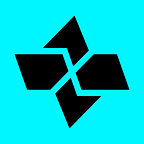Meet the Founders
Augusto Teixeira, PhD. — Cartesi CSO
Having been founded in 2018, Cartesi has grown exponentially into a platform that offers developers around the world an opportunity to tap into the near-limitless potential of smart contracts and DApps with their favourite tools.
As part of our “Meet the Founders” series that gives you a look behind the Cartesi curtain at some of the minds behind the project, we this week say hello to Augusto Teixiera, Cartesi’s Chief Scientific Officer.
As CSO of the project, Augusto Teixeira had the original idea to build Cartesi as a trustless AI marketplace, but he and the team quickly saw the scope for something much greater than this, realizing that they could build an infrastructure that also addresses scalability, computation and infrastructure issues, and thus Cartesi was born.
In this article we find out where it all started for him and what puts Cartesi at the centre of the future of smart contracts.
Augusto and the Cartesi team decided to create the platform after Augusto became friends and a scientific collaborator, Serguei Popov, Founder of IOTA, the first distributed ledger built for the “Internet of Everything”. Augusto holds a PhD in Mathematics from ETHZurich and a degree in Physics; he is also a Professor at the Institute of Pure and Applied Mathematics (IMPA) in Rio de Janeiro.
What made you get into blockchain?
I am a long time scientific collaborator of Serguei Popov and during all our discussions he would update me on the latest developments of blockchain technology. Being a supporter of Free and Open Source Software and a deep believer in digital freedom, this was a subject that attracted my attention for years.
It was in 2016 that I had an idea that could help Blockchains achieve greater scalability using Interactive Verification protocols. This is what lead me to join forces with the other founders to build something revolutionary.
What do you see as the industry’s biggest bottleneck to mainstream adoption currently?
Of course most people like to blame high fees and bad user experience as the main culprits for the slow adoption of blockchain technology. However, I would like to point out another important obstacle for the faster adoption: the bad development environment and consequently the lack of interesting apps in the ecosystem.
Having worked with smart contracts for over 4 years, it has become clear to me that developing decentralized applications is such a daunting task. And before we manage to make this simpler, we cannot hope that people will build such a diversity of nice applications as we can see for instance in the mobile industry.
How do you see Cartesi helping to address these issues in order to build the bridge between mainstream and blockchain?
It is clear to me that as soon as we make developing a decentralized application feel just the same as developing traditional software (in terms of tools, stacks, languages and libraries) we will see a major increase in the number of DApps being released.
“We are committed to bringing Linux with high computational power to blockchains.”
What do you see the next 5 years in smart contract development looking like for Cartesi?
I have so many ideas of applications that will be possible to built on top of Cartesi and I can clearly see a good bunch of them being built as soon as we release our rollups solution.
These include, games with complex and decentralized logic, DeFi applications that require intensive computations, AI markets… But what I am most excited about are the DApps that people will come up with and surprise our own team.
What has been the most memorable moment for you working in the space in the last 5 years?
A very personal moment that marked me was the time I bought my current laptop. At the time I was spending some months in Switzerland and I wanted to update my machine. I have tried all my different credit-cards and all of them failed for different reasons (none of them being my fault).
After a moment of anger, I saw that the website offered an option for payments in Ethereum. I hesitated a bit but decided to give it a try. It was not completely easy, as it required me to sign two separate transactions, but after 15 minutes I had received the payment confirmation and two days later I received my laptop.
Of course everyone is aware of the difficulties involved in using a hardware wallet and sign transactions. But the fact that there was simply nobody that could unilaterally block my purchase felt so liberating at the time and I can feel it to this date.
Name another project you think could help shape the future of blockchain besides Cartesi?
I think that Ethereum needs other data availability sources besides its own ledger and shards. This will allow people to chose the right balance they need between decentralization, security and scalability. In this front, I believe that Matic is offering a great venue for other applications to emerge.
As we move into Q2 of what is already becoming an unforgettable year for blockchain technology and cryptocurrencies, we are proud to be working on the frontlines of technological advances.
Cartesi’s Ecosystem Links:
Website: https://cartesi.io
Explorer: https://explorer.cartesi.io
Discord (Development Community): https://discordapp.com/invite/Pt2NrnS
Twitter: https://twitter.com/cartesiproject
Telegram: https://t.me/cartesiproject
Telegram Announcements: https://t.me/cartesiannouncements
GitHub: https://github.com/cartesi
